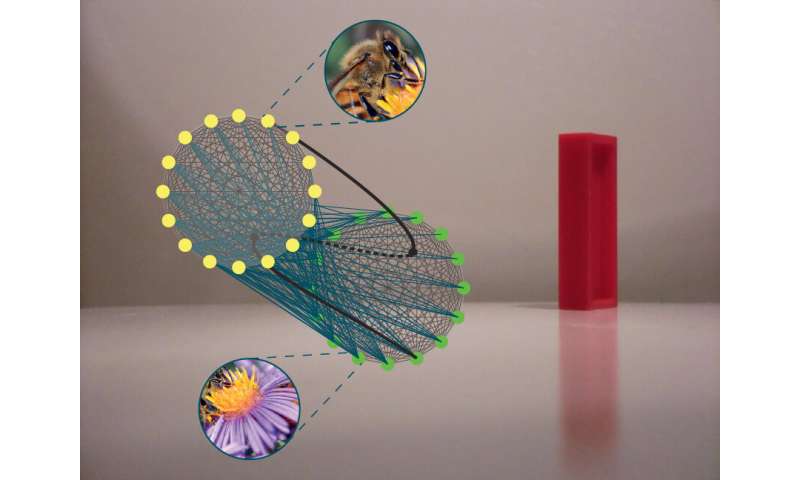Foreseeing a network's future beyond collapse

We live in a world of networks, perhaps even more so than most people realize. Obvious examples of complex networks found in our daily lives are the network of computer systems known as the internet, railway networks and power grids. As individuals, we form part of social networks of friends and family, and as biological systems, we depend on biochemical networks controlling the expression of genes to stay healthy. Networks of interactions between customers, companies and financial institutions form the economy; complex interactions through ocean and atmospheric circulation determine the climate; networks of interactions between species constitute ecosystems.
While these networks may seem highly different at first sight, there is common ground in analyzing these complex systems, especially when it comes to determining their response to changing conditions. When conditions change gradually, the state of some systems may change likewise, in a smooth, gradual manner. Other systems may, however, change abruptly and shift toward another, potentially less desirable state when a tipping point is passed. The outcomes of such "critical transitions" might be severe, for example, when a patient's health suddenly deteriorates, financial institutions collapse, or when species go extinct.
Not all critical transitions, however, have dramatic consequences. Complex networks may potentially shift to many different alternative states. Some of those may imply minor, harmless changes in the state of a system, or invoke positive change, whereas others may have catastrophic consequences. In a recent paper published in Ecology Letters, researchers from, among others, the Wageningen University and the University of Zurich show that for some systems, it might be possible to predict a system's future state.
When approaching a tipping point, complex systems recover increasingly slowly from minor disturbances, a phenomenon known as "critical slowing down." Disturbances, however, have a size (i.e., the total amount of change) and a direction (i.e., the relative amount of change in each node in a network). The more similar a disturbance's direction to that of increasingly small disturbances that may cause critical transitions, the stronger the effect of critical slowing down. Provided that there are no oscillatory, chaotic or other complex dynamics, a system's future state will most likely lie in the same approximate direction. When determining this direction, information might thus be gained on the expected relative amount of change in each node after an impending critical transition.
Mutualistic systems, i.e., systems in which mutually beneficial interactions are strong relative to other interaction types, are, among other systems, particularly unlikely to exhibit such oscillatory, chaotic or other complex dynamics. Therefore, as a case study, the authors used a model of a bipartite mutualistic network and showed that a network's post‐transition state is indicated by the way in which a system recovers from minor disturbances. Similar results obtained with a unipartite model of facilitation suggest that these results are of relevance to a wide range of mutualistic systems. These findings may inspire an entirely new and important direction of research as new techniques to collect and analyse complex data are rapidly developing.
This story is part of Science X Dialog, where researchers can report findings from their published research articles. Visit this page for information about ScienceX Dialog and how to participate.
More information: J. Jelle Lever et al. Foreseeing the future of mutualistic communities beyond collapse, Ecology Letters (2019). DOI: 10.1111/ele.13401
Jelle Lever's blog: www.systemicriskinecosystems.net/